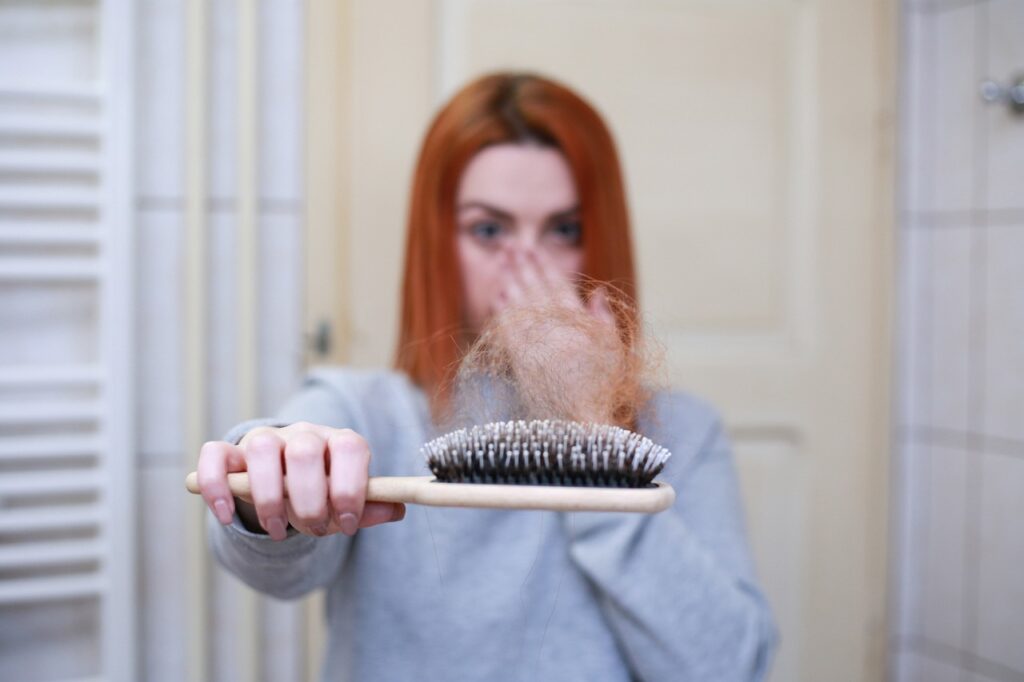Hair loss is a common problem that affects both men and women. Losing hair can be distressing and can have a significant impact on one’s self-esteem. There are several factors that contribute to hair loss, and understanding these causes is essential to finding effective solutions. In this article, we will delve into the different causes of hair loss and discuss possible treatments.
Introduction
Hair loss, also known as alopecia, is a condition where a person experiences hair loss from any part of the body. This condition can occur gradually or suddenly and can be temporary or permanent. Hair loss is a common issue that affects millions of people worldwide. The causes of hair loss vary from person to person, and understanding the underlying causes is crucial to finding effective treatments.
Normal Hair Growth Cycle
Before we delve into the causes of hair loss, let us first understand the normal hair growth cycle. Hair growth occurs in three stages:
- Anagen: This is the active growth phase where hair grows continuously for 2-6 years.
- Catagen: This is the transitional phase where hair stops growing and detaches from the hair follicle. This phase lasts for 2-3 weeks.
- Telogen: This is the resting phase where hair remains in the follicle for 3-4 months before falling out.
After the telogen phase, the hair growth cycle begins again with the anagen phase.

Causes of Hair Loss
Several factors can contribute to hair loss, and these can vary from person to person. Here are some of the most common causes of hair loss:
Genetics
One of the most significant causes of hair loss is genetics. If you have a family history of baldness, you are more likely to experience hair loss yourself. Male-pattern baldness and female-pattern baldness are two common types of hair loss caused by genetics.
Hormones
Hormonal changes can also lead to hair loss. Pregnancy, menopause, and thyroid problems can all cause changes in hormone levels, leading to hair loss. Androgenetic alopecia is a common type of hair loss caused by hormonal imbalances.
Nutritional Deficiencies
Lack of proper nutrition can also cause hair loss. Deficiencies in iron, vitamin D, and biotin can all contribute to hair loss. Eating a healthy and balanced diet is essential to prevent hair loss due to nutritional deficiencies.
Stress
Stress is a significant factor that can cause hair loss. When you are stressed, your body produces more cortisol, a hormone that can lead to hair loss. Chronic stress can also disrupt the normal hair growth cycle, leading to hair loss.
Medical Conditions
Certain medical conditions can also cause hair loss. Scalp infections, autoimmune disorders, and skin conditions such as psoriasis can all lead to hair loss. Diabetes and lupus are other medical conditions that can cause hair loss.
Medications
Some medications can also cause hair loss as a side effect. Chemotherapy drugs, blood thinners, and antidepressants are some examples of medications that can lead to hair loss.
Hairstyles and Hair Treatments
Hairstyles and hair treatments can also contribute to hair loss. Tight hairstyles such as braids, ponytails, and cornrows can pull on the hair and cause it to break, leading to hair loss over time. Hair treatments such as perms and hair straightening can also damage the hair and cause it to become brittle and prone to breakage.
Ageing
As we age, our hair naturally becomes thinner and weaker. This is because the hair growth cycle slows down, and hair follicles shrink, producing finer hair strands. Ageing can also lead to hormonal changes, which can contribute to hair loss.
Diagnosis
If you are experiencing hair loss, it is essential to visit a doctor or a dermatologist to determine the underlying cause. The doctor will examine your scalp and hair, and may also order blood tests to check for any nutritional deficiencies or hormonal imbalances.
Treatment Options
There are several treatment options available for hair loss, depending on the underlying cause. Here are some of the most common treatment options:
Topical Medications
Topical medications such as minoxidil and finasteride can help stimulate hair growth and prevent further hair loss. These medications are applied directly to the scalp and are available over-the-counter or by prescription.
Oral Medications
Oral medications such as spironolactone and dutasteride can also help treat hair loss. These medications work by blocking the production of hormones that contribute to hair loss.
Hair Transplantation
Hair transplantation is a surgical procedure where hair follicles from the back of the scalp are transplanted to the balding areas. This procedure can be expensive and may require multiple sessions to achieve the desired results.
Lifestyle Changes to Prevent Hair Loss
Making certain lifestyle changes can also help prevent hair loss. Here are some tips:
- Eat a healthy and balanced diet rich in vitamins and minerals.
- Avoid tight hairstyles that pull on the hair.
- Avoid hair treatments that can damage the hair.
- Manage stress through relaxation techniques such as meditation and yoga.
- Get enough sleep and exercise regularly.
Conclusion
Hair loss can be a distressing condition, but there are several treatments available to help manage it. Understanding the underlying causes of hair loss is crucial to finding effective solutions. Whether it’s genetics, hormonal imbalances, or nutritional deficiencies, there are various treatment options available to help stimulate hair growth and prevent further hair loss.





